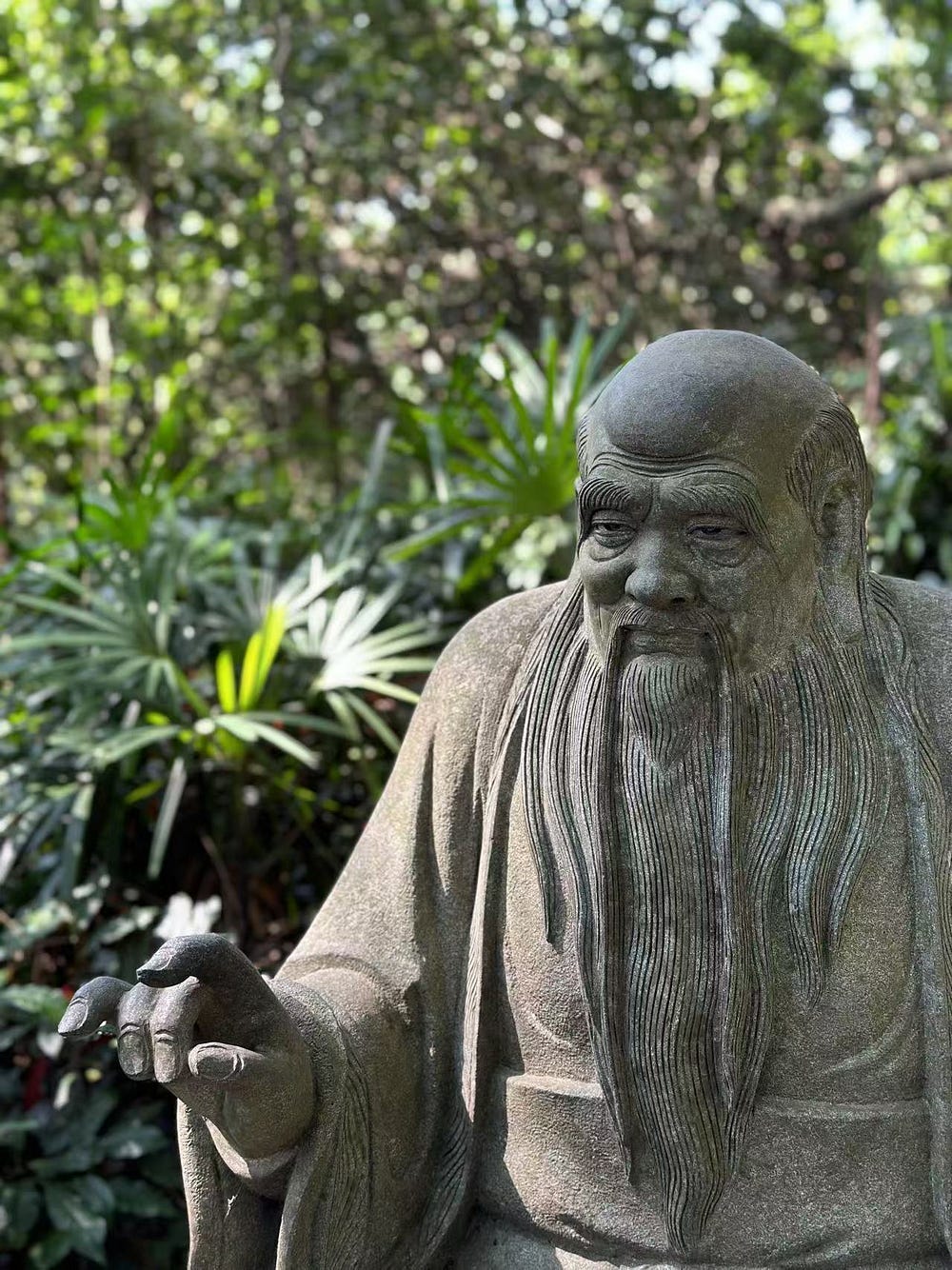My contrarian, anarchist streak likes nothing more than to take an unlooked-for position and run with it. The Daoists and Confucionists may have developed at roughly-maybe a similar time, but Confucius’s doctrine was adopted by the ruling families first and had a good long run. Was it fair to blame the Confucionists for the problems of the Han dynasty? Maybe. We aren’t able to say. But the Daoists certainly got some good kicks in while they could. There was, and is though, grudging respect. Game recognizes game, as when Confucius said this:
“Although Laozi’s words in the book seem to be empty, they are very profound in terms of the art of governing people.” — Confucius
We found this in a list of quotes praising Laozi and “the book” at Qingyuan Mountain. I was delighted to see a quote attributed to Confucius here. This is the Daoist Mountain. The great statue of Laozi is 1000 plus years old, the veneration of the mountain itself more than 2000 years. It is an honor and sign of respect to showcase a saying of Confucius here, and a compliment that acknowledges the spirit of cooperation and sharing of mutual goals that mark these great men and institutions.
It is a compliment, right? I mean, he called The Daodejing (“the book”) profound. The text is difficult to interpret, perhaps, but profound. For governing people, and presumably, maybe perhaps other things. Highly intelligent and learned people, such as Confucius, can see past the emptiness of the words, to the value underneath. The Daodejing will only seem empty and useless to most people. If we can bring specialized education and instruction from a learned master to bear on the text, I am sure one can pull some artistic commentary that they would find mildly supportive in the governing of a populace. And so on.
All right, so maybe a bit of cheeky, begrudging, backhanded compliment. Though isn’t the Daoists giving pride of place in their park to his comment the ultimate gotcha move? We know that you know that we know — you know? A lowkey sick burn that will rankle here for centuries. Laozi forever has it over Confucius. The Art of Governing, really? Laozi’s parting words to Confucius never really sank in, “Do not think of yourself only as a son or a minister at court.” Sorry Confucius, nice try.
Don’t tell me I’m reading too much into it. Don’t tell me I shouldn’t believe everything I read on the internet or in a Chinese 5A park. I am enjoying this too much.






We know Kongzi travel so many place try to convince different governors to buy in his idea . So he’s “try harder “ Laozi let the nature decide so they are totally two different kinds of approach. No right and wrong answer depends on the timing and what kind of government. I do think Kongzi learn a lot from Laozi and feel thats may not work for government. But both has good idea for us to use nowadays in business management and leadership.
I'm under the assumption that Confucius may have found something worthy of his study in the pages of the DDJ. It's important to remember, though, that Confucius focused mostly on governance and social role, advocating for a strict system of higher and lower positions based on age or political position. He cared about governance, and perhaps his quip only illustrates his focused, myopic lens for viewing the world. That, or it is the slight brought on by co-opting or misappropriating the DDJ for something it positions itself mostly against. Maybe we can consider it similar to the relationship between Idealism and Materialism or other competing, apparently dualistic or dialectic strands of thought.